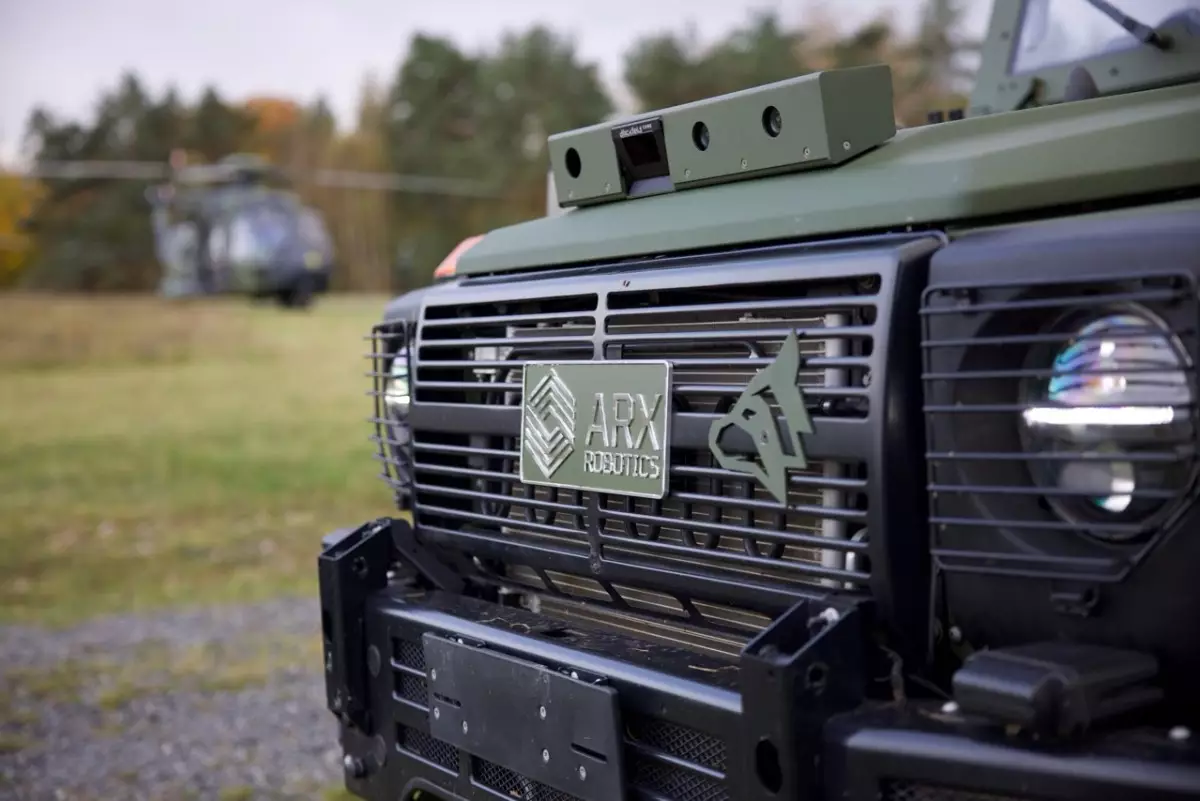The world of defense technology is on the brink of significant transformation with innovations that merge the past and present. One notable contributor to this evolution is ARX Robotics, a startup founded by former soldiers of the German military. By cultivating a unique blend of hardware and software, ARX aims to breathe new life into aging defense equipment, equipping them with advanced capabilities that align with contemporary warfare demands. The company’s flagship product acts as a digital platform, transforming conventional military vehicles into sophisticated, AI-driven machines capable of autonomous operations.
In a bid to scale their innovative approach, ARX Robotics recently secured €9 million in seed funding, with the NATO Innovation Fund leading this investment round alongside Project A Ventures and Discovery Ventures. This financial backing underscores the growing recognition of the challenges faced by military forces across Europe, especially in light of the ongoing conflict in Ukraine. The Ukrainian battlefield has served as a proving ground for many concepts, and for ARX, it provided invaluable insights into the limitations of existing military hardware and software integration.
The innovative ARX Mithra OS serves as a pivotal element in the company’s strategy, transforming conventional military vehicles into intelligent, interconnected units. This AI-based operating system integrates a suite of hardware including cameras and sensors that can be minimally retrofitted to existing military trucks and vehicles. The ARX Autonomy Kit offers a refreshing solution: over-the-air updates that keep the technology at the cutting-edge without the need for constant hardware upgrades.
Marc Wietfeld, a key figure in ARX and a former German Army member, has articulated a critical observation—while many modern armies procure advanced technologies like drones and sophisticated sensors, the analog foundation on which they are built remains inadequate. He laments the purchase of 3,500 Mercedes trucks by the German Armed Forces, noting the absence of any digital connectivity or effective communication systems. His approach to this predicament is both innovative and practical, effectively encapsulating a vision for the future of military logistics and operations.
The overarching theme of interconnectivity resonates through Wietfeld’s discourse. The traditional setup of NATO’s military arsenal reveals a concerning gap; modern warfare is increasingly reliant on the seamless operation of drones, sensors, and AI systems. Without these elements working in unison, the military machinery remains cumbersome and outdated. ARX Robotics steps in as a potential game-changer, positioning its products as the critical link that can rise to the occasion—transforming passive military assets into proactive agents of change.
Responding to the urgent needs stemming from conflicts like the one in Ukraine, ARX’s ambition goes beyond merely retrofitting existing fleets; it seeks to establish a cohesive language amongst various military systems to ensure that every asset can effectively communicate and function together. The conceptualization of vehicles as “wingmen” represents a significant leap into the future, promising enhanced fleet intelligence and bolstered situational awareness.
Addressing Budget Constraints in Military Spending
Despite the apparent increase in military spending following the Russian invasion of Ukraine, budgeting for defense initiatives remains a multifaceted challenge. National priorities are in flux, and with limited resources, many states find themselves forced to make difficult decisions about their defense capabilities. Wietfeld emphasizes the urgent need for a dual strategy: not only investing in new technological advancements but also enhancing existing materials to meet modern combat requirements.
The strategic advantage of ARX Robotics lies in its unique sell proposition—it avoids the prohibitive costs and long wait times associated with the procurement of entirely new systems. Instead, ARX enters the fray with solutions tailored to retrofit current equipment, thus leveraging previously established investments while fostering innovation.
As the battlefield of the future increasingly embraces digital and autonomous systems, ARX Robotics stands at the forefront of making substantial impacts within military operations. Their innovative approach of integrating advanced technology into legacy equipment is not just timely but essential for enabling NATO and allied forces to adapt to contemporary challenges. By ushering in a new age of interconnected and intelligent military systems, ARX is not only revolutionizing military logistics but also redefining the very fabric of warfare in the 21st century.

